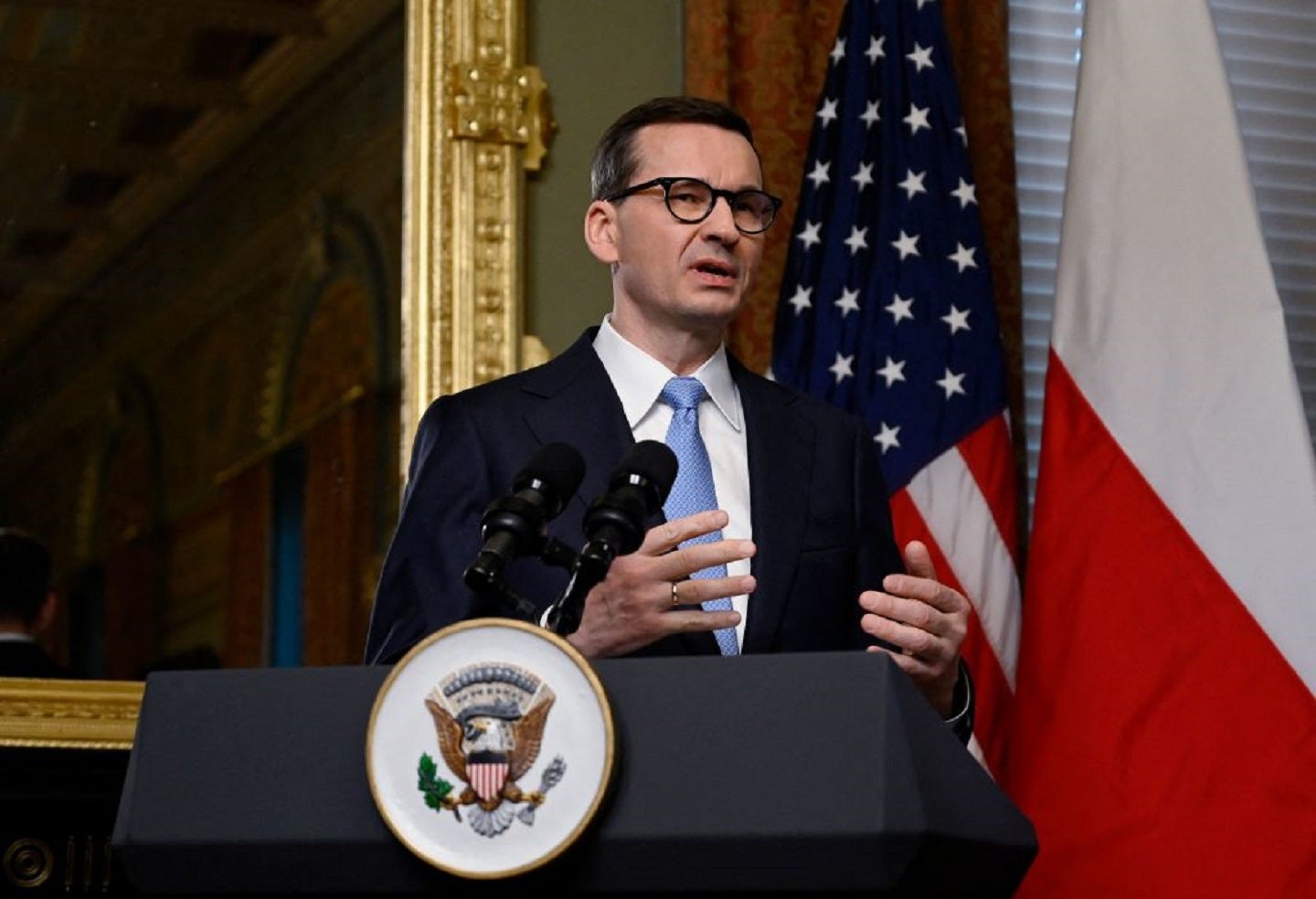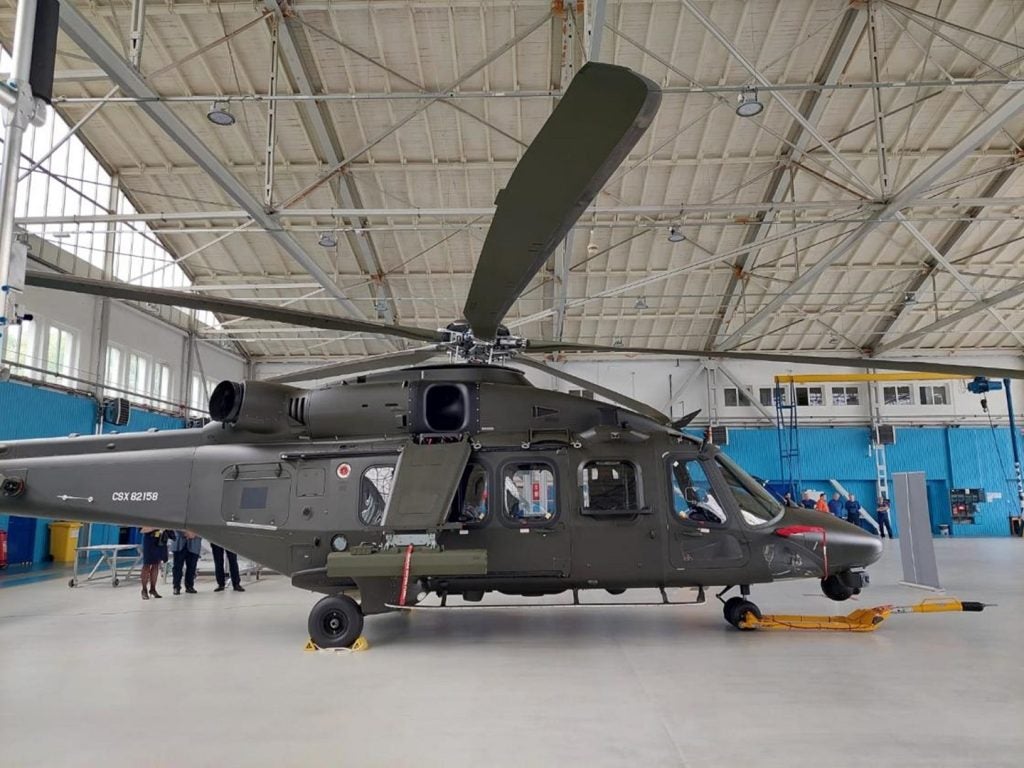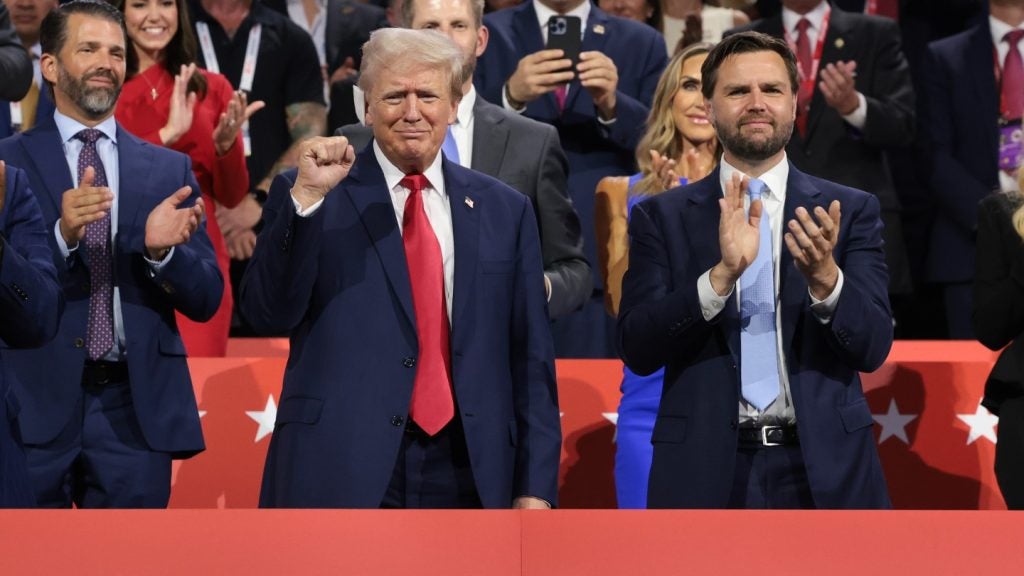
The prime minister of Poland, Mateusz Morawiecki, made reference to a divide between European countries when speaking at an Atlantic Council front page event on 13 April 2023.
Morawiecki split up Ukraine’s Euro-Atlantic supporters into three groups: English-speaking countries, central and eastern European countries (minus Hungary), and the rest of western Europe (mainly France and Germany). The third group, he said, have made “a dramatic mistake of close energy co-operation with Russia and now their position toward Ukraine is not the same as the United States or Poland”.
“The collective west [wants] Ukraine to win – but not necessarily to the same extent” the prime minister warned.
“There are politicans in western Europe who [welcome] a ceasefire at any price” to secure their own macroeconomic sustainment he added.
This extends to their relations with China too. For Morawiecki, the French President Emmanuel Macron’s visit to Beijing recently confirmed his concerns that this group “want selling of high margin products to China to continue”. This risks undermining the more hawkish attempts of the former two groups to resist the obvious threat the People’s Republic of China (PRC) pose against the rules-based order, the national sovreignty of countries in contested areas, and their human rights violations.
“The wake-up call to China is very soft [and] very weak across the European Union and you could see this over the past couple of weeks” Morawiecki stated.
Condoning hostile regimes
The amenability of western European countries like France and Germany toward hostile regimes like Russia and the PRC are dubious at first glance. However, their phobia of transatlantic co-operation goes further than energy and trade. Their refusal to co-operate can be found in their resistance to American authority steering Europe’s collective response to global affairs.
While these resistant European states make the argument to preserve their strategic autonomy, Morawiecki said: “I do not quite understand the concept of strategic autonomy if it means that some European countries are trying to make China the same mistake [as] with Russia.
“European autonomy sounds fancy, doesn’t it? But it means shifting the centre of European gravity toward China, and severing ties with the US”.
Morawiecki’s concern points out how this intransigence and national self-interest risk a docile attitude toward totalitarian aggression. This will not stand as far as the former two groups are concerned.
Poland’s plea for a united front
“Poland is one of very few states which are equally pro-American and pro-European at the same time, hence we are an ideal keystone and binder for Atlantic relations” Morawiecki claimed.
The prime minister urged the third group to retire their frutiless strategy for superficial autonomy and to work co-operatively with their US ally.
“Poland needs the US, but Poland needs firm European allies. Allies that actually care about transatlantic co-operation” he contended.
Poland will spend about 4% of its gross domestic product on defence this year, doubling Nato’s 2% benchmark. Warsaw bought or is currently buying new Abrams main battle tanks, F-35 Lightning II fighter jets, and HIMARS from the United States. “Only by arming ourselves, [can we] strengthen our deterrent power,” Morawiecki said. Thus, he added, Europe “needs the bond” as well.
Poland’s partnership with the US extends beyond matters of security. On energy, Poland is working with US companies on developing its nuclear-energy capabilities and on becoming “completely independent from Russian fossil fuels.” Warsaw is working with US companies on information technology, “cloud computing, artificial intelligence, [and] machine learning”, Morawiecki said.








